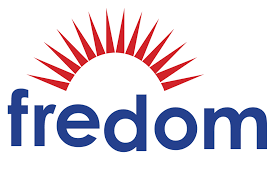Call Center Technical Support Compliance Issues to Look Out For
A call center needs to comply with various regulations and industry standards. This includes laws, rules, policies, or procedures set by government agencies and organizations such as the Federal Trade Commission (FTC), the Financial Industry Regulatory Authority (FINRA), and the Department of Labor (DOL), to mention a few.
Compliance issues can have serious consequences for a call center, including financial penalties and reputational damage. Thus, it is important to be aware of common compliance issues that might arise. This can help ensure that the call center complies with industry standards and regulations.
Data Privacy
Call centers must comply with state and federal data protection laws, such as the Health Insurance Portability and Accountability Act (HIPAA). The European General Data Protection Regulation (GDPR) is also something to be aware of if we store or process data from the European Union.
A technical support call center must ensure the privacy and security of customer data. This includes protecting personal information such as names, addresses, phone numbers, social security numbers, and credit card numbers. Protecting customer data is not only a legal requirement but also helps build customer trust.
Recording and Monitoring
Many call centers record and monitor calls for quality assurance and training purposes. This can involve recording customers’ conversations or tracking the performance of agents. This practice is subject to federal, state, and local laws on recordings of telephone conversations.
To comply with these regulations, call centers must get permission from customers to record and monitor calls. Customers should be informed of their right to refuse or terminate recordings and adhere to all applicable laws.
They can have a pre-recorded message informing customers that their call may be recorded or monitored for quality assurance purposes. If the customer does not agree to the terms, they have the right to terminate the call.
DND Number Calling Restrictions
The Do Not Disturb (DND) Registry is a list of phone numbers that companies are prohibited from calling for telemarketing purposes. Call centers must ensure they are not calling any numbers that appear on the registry.
Call centers should also adhere to local laws and regulations concerning telemarketing. This includes calling times, call frequency limits, and any other restrictions that may apply to their business operations.
For instance, in the US, telemarketers must identify themselves and their businesses before asking for any information from customers. They also cannot call people between 9 pm to 8 am without their permission.
In the UK, telemarketers cannot call anyone who has registered with the Telephone Preference Service (TPS). They must also ensure they are not calling anyone on the Corporate Telephone Preference Service (CTPS) list.
Training and Quality Assurance
Call centers must provide comprehensive training for agents to ensure they are familiar with company policies and procedures. Agents should also be trained on how to handle customer complaints, resolve technical issues, and comply with any relevant regulations.
Quality assurance is also an important part of call center compliance. Quality assurance teams should regularly review calls and monitor agent performance to ensure that customer service standards are being met.
Employee Rights
Call centers must comply with applicable laws regarding the rights of employees. This includes the right to be free from discrimination, harassment, and bullying in the workplace. It also includes protecting employee wages and benefits and providing a safe working environment.
To ensure employee rights are being respected, call centers should have clear policies in place and conduct regular training sessions. They should also have a procedure for reporting any complaints or violations. Moreover, they should have a system in place to investigate any such complaints.
Payment Information Security
Call center services must comply with Payment Card Industry (PCI) Data Security Standards when it comes to handling customer payment information. This includes having security systems in place for collecting and storing customer payment data. Call centers should also have a plan in place for responding to, investigating, and reporting any security breaches.
Moreover, call centers can implement additional security measures such as using encrypted software, two-factor authentication, and tokenization to protect payment information. These measures can help protect customers’ sensitive data and ensure compliance with industry standards.
Network Security
Call centers should also have adequate network security to protect customer data and ensure business operations are not disrupted. This includes having firewalls, intrusion prevention systems, and antivirus software in place to detect and prevent any potential threats.
Call centers should also be aware of the risks associated with remote access and use secure protocols when allowing employees to access the system remotely. Furthermore, they should have a disaster recovery plan in place in case of any network failure or data breach.
The Conclusion
This is just a brief overview of some common compliance issues that call centers must be aware of. If we are not taking the necessary steps to ensure compliance, our business could be at risk of facing hefty fines and other legal repercussions. We need to make sure that we are taking the right precautions to keep our call center compliant and protect our customers’ data. All these measures will ensure that we are running a successful and secure call center.

